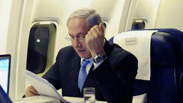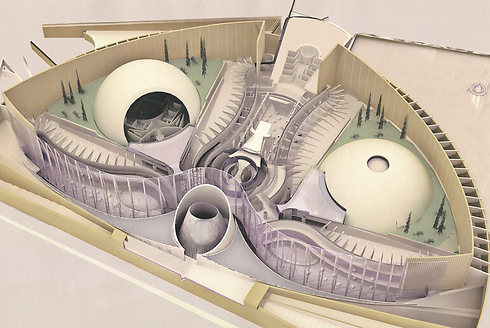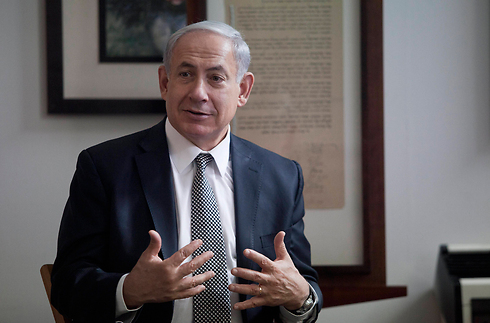
The Defense Ministry will head the project and the Air Force will take charge of the plane's operations.
The new Prime Minister's Residence (Almog Project) will be built on a planned site at the government complex in Jerusalem. During his second term, Prime Minister Benjamin Netanyahu halted the construction of the project.
The new plan expected to pass is smaller in size than the original Almog Project, yet the projected cost exceeds the original's estimate – NIS 650 million, not including the cost of furnishing and communications equipment.
Finance Minister Yair Lapid wrote an official opinion against the recommendations of the committee, but the plan is still expected to be approved. The committee determined that it was necessary for the office and residence of the prime minister to be in close proximity, to assure continuity of the command chain in case of emergency.
Related stories:
- Committee to decide on construction of Israeli 'White House'
- Israel completes tests on airline defense system
- PMO: Netanyahu's official, private residences' spending reduced
The committee recommended the residence make up only 11 percent of the total land of the compound.
The committee's report determined that the prime minister's current travel situation was inadequate and needed immediate redress. The committee's conclusions called for the purchase of a plane to be exclusively used by the president and prime minister.
Financial reports reviewed by the committee revealed that, on average, the two Israeli leaders spend NIS 19 million per year, with the prime minister chartering a private plane for his travels and the president flying commercial in first class.
The director of the President's Residence, Efrat Duvdevani, told the committee that the president's current travel arrangements result in embarrassing situations.
For example, when the plane arrives at the destination, the president disembarks first at a state ceremony on the runway, while the rest of the passengers are delayed and only allowed off the plane during the ceremony "carrying their bags and suitcases. It's very embarrassing. "
She also testified that a number of countries had sent their private planes to fly the president to their events.
"We are not a third world country. We do not need the charity of other states who send us their planes. It doesn't look good," said Duvdevani. She explained that any person who buys a first class ticket has a chance to sit next to the president and read the documents the president reviews before his meetings.
The private plane chartered for the prime minister's flights is also inadequate. Prime Minister Netanyahu told the committee: "The leader of the State of Israel is in a box that has no protection and no secure communication. It is not possible for the prime minister to spend hours without effective and secure communication."
Netanyahu's former military attaché, (res.) Maj. Gen. Yohanan Locker, who once borrowed an IDF satellite phone for the plane, told the committee about his experiences traveling with the prime minister: "When I arrived on my first flight with the prime minister, I had the sensation that I was on a flight from 30 years ago. We were in a bubble, and the prime minister was disconnected.
"He is just missing for 15 hours. The prime minister can't speak to foreign leaders or receive updates. He is disconnected from the world."
The plane purchased for the Israeli leaders will be outfitted with the "Sky Shield" system, which will soon be installed on civilian aircraft. Because the plane currently charted for the prime minister has no air defense capability, the prime minister has avoided flying to certain states with which Israel has political or financial ties.

















